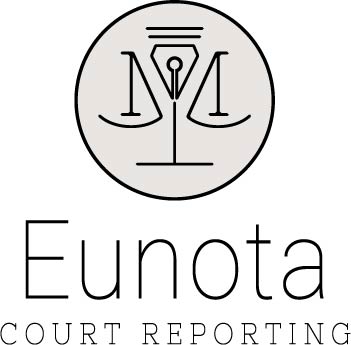Understanding Videoconference Encryption
Understanding videoconference encryption
Videoconferencing is quickly become a popular option for legal teams to meet in New Brunswick, but legal meetings have one huge requirement: confidentiality. If hackers are able to tap into an important videoconference stream (i.e. discovery or deposition) and record secretly, it could be disastrous for a legal case. Eunota’s blog is here to explain how we can make online meetings more secure and ensure confidentiality for all parties involved.
What does “encryption” even mean?
Encryption is basically a way to make online exchanges safer by turning it into a code that would make no sense to someone without the key to turn it back into something coherent. This code could look like a serious of numbers, letters, and symbols that don’t relate to any plain language. A fun example follows: Moncton wants to send a secret message to Dieppe regarding a tri-community competition without letting Riverview in on the secrets; Moncton would create a message, encrypt it (turn it into code), then only give Dieppe the key to turning it back into plain language like English or French. If Riverview were to intercept the message, when they opened it, it would look like this: *&FkjhDM@HKE21851eJfejnbfe2 etc. The message is still safe even though it was intercepted.
How does encryption relate to videoconferencing?
When we think of encryption in terms of turning text into secret code, it can be a little confusing regarding something moving and live like video. In essence, it’s the exact same thing as language, just instead of the language we can read and understand, it’s code that the computer understands to make the video. In very rough terms, your computer creates a code for the video, sends it, and the other computer receives the code and turns it into what our brains can understand: a video of the person on the other side. With computers, it’s all codes, codes, codes and it happens VERY quickly. These codes can be sent from Moncton to Fredericton, from Campbellton to Toronto, or Vancouver and beyond.
More than just video security
Encryption is also very important when it comes to sharing highly sensitive documents that contain information like SIN numbers, medical information, and details that fall under solicitor-client privilege. Because documents can be shared via videoconference platforms while a meeting is in progress, it is important to ensure encryption so those documents are not intercepted.
Choosing a platform with encryption
Now that you have a rough understanding of encryption, how does it apply to the day to day of court reporting and legal videoconferencing in New Brunswick? Simple: it keeps your information confidential. With the many options available for videoconferencing, here are a few popular options which offer end-to-end encryption: Zoom, Microsoft Teams, Webex.

Book Eunota Court Reporting Today!
Eunota is an unbiased third-party court reporting service that is based in Moncton, New Brunswick and travels around the province providing excellent services to those in need of high quality recording and transcription. Please contact us to get a free estimate or to make a booking today!

